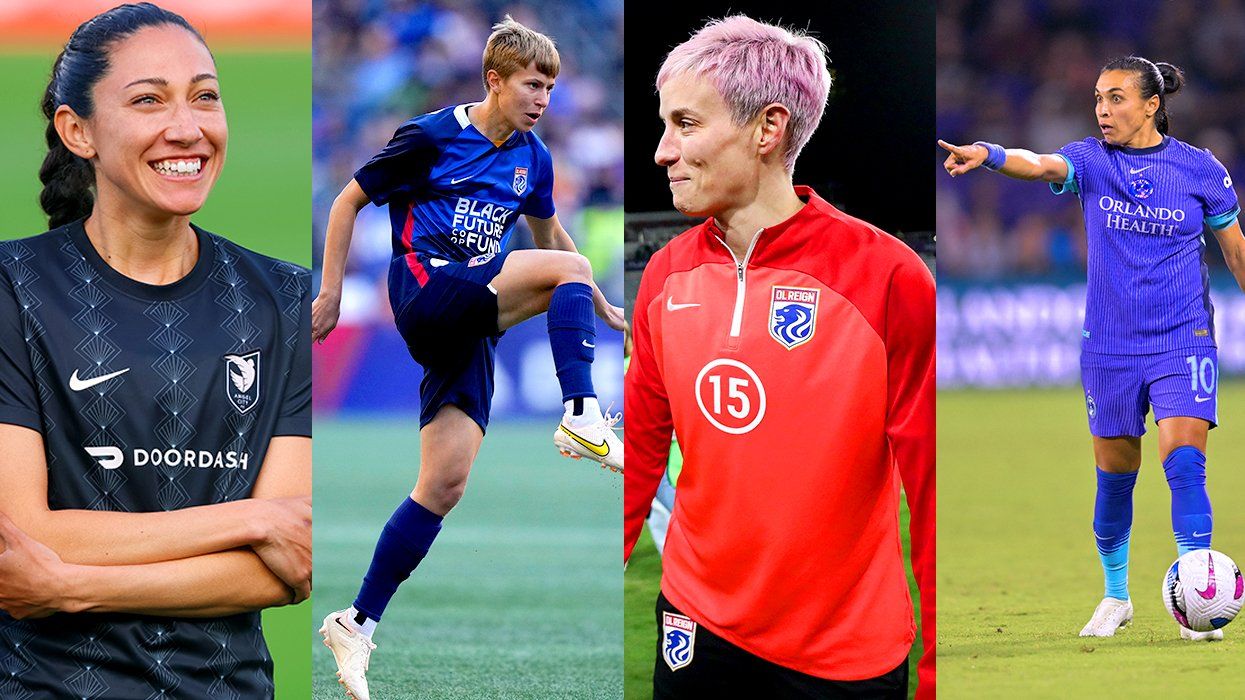It was one act of male violence too many. That was both trigger and impetus. After Elliot Rodger, women had had enough. Every raw emotion about every act of violence against women–personal or witnessed–was coming to the fore. It began on May 24 and by May 27 there had been more than a million–a million–tweets with the hash tag #YesAllWomen.
#YesAllWomen have felt the threat that not one of the victims of Elliot Rodger had time to feel. #YesAllWomen know what it is to fear the sudden footstep behind them as they walk to public transportation or to where they parked their car. They know what it is to be in the dorm room with the new boyfriend who is tired of the friend zone. They know what it is like to be felt up on the bus or at a concert or in a mall by a total stranger.
They know what it is to keep silent and pretend none of this really matters.
On May 24, they–we–had had enough. It was the morning after the massacre and women were hung over with anger and grief, fear and outrage.
On May 23, a Friday night, Elliot Rodger went on a shooting spree that killed six people, wounded 13 and left Isla Vista, Calif. forever marked as that town where that guy who hated women killed all those students.
It wasn’t new, a mass killing by a young man in America. According to the FBI, mass shootings happen about every two weeks. Half of those are domestic violence: men killing wives/partners and their children or other family members. The FBI characterizes a mass shooting as four or more victims.
We’ve seen myriad shootings like this in recent years. It feels like it began with Columbine and Virginia Tech, then exploded with the 2011 Arizona shooting that injured Rep. Gabby Giffords and 18 others and killed six. But then there was Aurora and Foot Hood and the slaughter of first graders at Newtown, and then the Washington Naval Yard shooting.
A meme about these killings has sprung up: young, angry, mentally ill white guys with a massive amount of guns. For the most part that’s been true–a few of these shooters have been men of color, but white men have been the norm.
Elliot Rodger wasn’t white, he was Eurasian as he preferred to be called, with an Asian mother and a British father. He also wasn’t obviously mentally ill like African-America mass shooter Aaron Alexis, who had been hearing voices for weeks prior to going to the Washington Naval Yard last September and killing 12 people, or the Aurora movie theater shooter James Holmes who killed 12 and injured 70 in 2012. Holmes, too, had been hearing voices. Adam Lanza, the Newtown shooter, had mental health problems as did Jared Lee Loughner, the man who shot Giffords.
Media reports of Elliot Rodger began in much the same way–he was mistaken for white, mistaken for deranged. But then the portrait of a sociopath as a young man started to emerge and as that picture was formulated, women began to get upset, then angry, then speak out.
What was it about Elliot Rodger that touched nerves none of the other mass shooters had?
It was his plan to kill women. Lots of women. Starting with his favorites–blondes–and "hot sorority girls," then expanding to include every woman he could murder.
His 141 page “manifesto,” My Twisted World, Rodger detailed a series of scenarios in which he would "destroy" women. These included his desire to put all women in concentration camps where he would starve them to death and also torture the pretty ones by flaying them alive. His intent was clear from the outset -- he wanted to "wage a war against all women." Women were, he said again and again, the source of all his pain and suffering.
"I would have an enormous tower built just for myself, where I can oversee the entire concentration camp and gleefully watch them all die," he wrote. "If I can’t have them, no one will, I imagine thinking to myself as I oversee this. Women represent everything that is unfair in this world, and in order to make this world a fair place, women must be eradicated."
It’s unsurprising his parents called police when they saw his equally angry videos, precursors to the “manifesto.” Unfortunately, the police were charmed where women never had been and Rodger convinced them nothing was wrong. Several weeks later, carnage.
He outlined his plan to kill all the women in the sorority house near the apartment he shared with two roommates who he would later stab to death, along with one of their visiting friends. He was obsessed with blondes, the only women he was attracted to, and when the women at the Alpha Phi sorority refused to let him in, he shot the first women he saw–Veronika Weiss and Katie Cooper died. A third young woman is still hospitalized.
What was it about Rodger that spurred the massive response from women on Twitter? Was it Rodger’s misogynist hatred for women and his blaming of them for all his problems, or was it that women were his intended victims, the reason for his killing spree and the media was ignoring that fact, going with the usual "crazy white kid with guns" meme?
Not all men pick up their guns when they can’t get the woman they want, but that’s what Rodger did. Furious with women that he was still a virgin, he made video after video about his anger. Those videos were there for us women to see. We could hear the now-dead killer in his own low, eerily emotionless voice talking about a day of retribution when he would massacre as many women as he could find. And when the police found him, dead from an apparently self-inflicted wound, he had three semi-automatic handguns and 400 rounds of ammunition.
It could have been a lot of "blonde girls," dead.
Male violence has been a topic for discussion on social media for some time. Last year on Twitter political analyst and anti-rape activist Zerlina Maxwell led a discussion on #streetharassment. As Maxwell explained to CNN after the Rodger killings, she started #rapecultureiswhen in response to a Time.com op-ed calling for an end to "rape culture hysteria." The hashtag highlighted examples of victim blaming and was tweeted more than 67,000 times.
I led one on the global perils of #sharedgirlhood. Nigerian activist Oby Ezekwesili and Los Angeles filmmaker Ramaa Mosley began the momentous #BringBackOurGirls.
But it’s the #YesAllWomen hashtag that has become a rallying cry to rival #BringBackOurGirls. It’s the hashtag that has brought women who never speak out together with women who are well-known feminist voices to talk about male violence and violence against women and what it means to grow up under the pall of what might happen to you if you are in the wrong place at the wrong time in the wrong outfit after the wrong number of drinks and then it is all your fault. As woman after woman posted, "No one ever asked a man what they were wearing when they got attacked."
#YesAllWomen was a counterpoint not just to the horror’s of Elliot Rodger’s palpable hatred of women, but it was a firm rebuke to the men who constantly chime in on any conversation about anything women have to say about male violence with, "not all men."
Not all men rape or kill if they can’t get the woman they want but enough do -- one in five women is a victim of rape, one in four a survivor of child sexual abuse -- to make it resonant. Regardless of #NotAllMen’s long-standing status as a hashtag of female resignation, #YesAllWomen was about empowering our voices. I posted over 150 tweets with it myself. Other activists like Soraya Chemaly, Maxwell and so many others began an almost obsessive tweeting, determined to state all that had been left unsaid by women their whole lives about their second-class status as females and the impact it had on their lives as well as the vulnerabilities they could never shake off because they were societal, not personal.
Chemaly tweeted early on: "#notallmen practice violence against women but #YesAllWomen live with the threat of male violence. Every. Single. Day. All over the world."
I wrote, "Do people realize that men say the things #ElliotRodger said to/about women every day on Twitter? Because it happens. And to #YesAllWomen."
Others wanted the media reminded of Rodger’s hatred of women and how specific it was. Australian feminist Caitlin Roper wrote, "Rodger did not choose a sorority house any more randomly than Brussels shooter chose a Jewish museum."
Some also took the discussion broader -- women were tweeting about other feminist issues related to both women’s second-class status and male violence. Chemaly wrote, "Because #YesAllWomen are pitted against each other for access to safety, resources & power by patriarchal and colonial race & caste systems." I tweeted about violence against lesbians, sending out a series of tweets naming lesbian victims of male violence, like Sakia Gunn, whose 27th birthday would have been May 26th if she hadn’t been murdered at 15 by a man who came on to her and her girlfriend. When she told him to leave them alone, because she was a lesbian, he stabbed her.
The #YesAllWomen tweets -- those million plus tweets -- were beginning to have the same impact as #BringBackOurGirls. The response, the volume, has been stunning. It’s like a giant consciousness-raising group, tweeting its way to critical analysis and feminist self-awareness.
Second Wave feminist Germaine Greer once said women would be stunned to discover how much men hate them. It didn’t take long to find out. No good hashtag goes unhacked and soon men were posting on and about #YesAllWomen. #YesAllPeople sprang up, its intent to discuss men. Men were also posting unsavory tweets on #YesAllWomen itself, and also trolling women posting there, sending ugly missives about how Elliot Rodger had the right idea and messages about rape and violence. Other men were merely condescending. Journalist David Frum peevishly wrote that women should go live elsewhere if they wanted to see what real misogyny was and linked to a BBC article on acid burnings.
Other men were tweeting that women were to blame for Elliot Rodger -- that if women had just had sex with him, none of this would have happened. In response to dozens of such tweets I wrote, "Men keep tweeting #ElliotRodger snapped because of the pressure on him. What if every raped woman "snapped"? Carnage. #YesAllWomen."
The very things women had been tweeting about -- not being able to talk about male harassment and violence without adding #NotAllMen -- were now coming true. As I tweeted Wednesday morning, "Four days of a hashtag & men are hysterical because women keep talking about their gender. Imagine that every day since birth #YesAllWomen."
Yet despite that, women continued to keep the momentum up. There have certainly been repetitions, but what is so astonishing is you can read 100 or 200 tweets and find no replications.
The hashtag "allows people the opportunity to tell their stories, but it also allows other people to really listen," Emily May, co-founder and executive director of the anti-street-harassment organization Hollaback! said in an interview with Yahoo Shine. "We’ve seen tons of stories, but what we’ve also seen are people saying, ‘I didn't know that happened, and I get it now.’ That's the real power."
And it is. Zerlina Maxwell told CNN, "While most feminist-driven Twitter campaigns preach to the choir, #YesAllWomen has succeeded in drawing the mainstream–including men--into the conversation." Maxwell also said, "It’s not somebody on high saying this is a problem in society and everyone should fix it. It’s people talking about real experiences, and each experience is validated by the next."
I spent three hours live-tweeting about #YesAllWomen and Elliot Rodger on May 27 from the UK site Room of Our Own. Nearly every respondent had a story of her own about violence and discrimination. All were looking for validation and connection around those experiences. This wasn’t a meeting of the victimized, as Fox News’s Megyn Kelly called the #YesAllWomen movement. This was a meeting of survivors demanding change, demanding action.
Attempts to silence women or get them to silence themselves with regard to #YesAllWomen will likely continue, but hopefully #YesAllWomen will remain a potent and resonant meme.
Hacktivist Suey Park, who created the #NotYourAsianSideKick hashtag wrote on May 27, "#YesAllWomen has been co-opted by white feminists and male feminists, while harming WOC creators. Fall back."
Many women responded that this was an arrogant appropriation itself, particularly as two of the loudest and strongest voices for #YesAllWomen had been Maxwell, who is African American and Chemaly, one of the best-known feminist writers of the Third Wave. In addition, the hashtag seemed to have sprung up spontaneously from several sources. And it reads #YesAllWomen, notsome women.
#YesAllWomen may have exposed some of the long-standing rifts within feminism, like between white women and women of color, liberal and radical feminists, straight and lesbian women. But it has also re-defined the strengths: Women’s shared experience is intense and shockingly archetypal, and we are far more similar than we are dissimilar. So #YesAllWomen. Yes.
Victoria A. Brownworth is an award-winning journalist, editor and writer. She has won the NLGJA, the Keystone Award, the Lambda Literary Award and has been nominated for the Pulitzer Prize. She won the 2013 Society of Professional Journalists Award for Enterprise/Investigative Reporting. She is a regular contributor to The Advocate and SheWired, a blogger for Huffington Post and a contributing editor for Curve magazine, Curve digital and Lambda Literary Review. Her writing has appeared in the New York Times. She is the author and editor of nearly 30 books including the award-winning Coming Out of Cancer: Writings from the Lesbian Cancer Epidemic and Restricted Access: Lesbians on Disability. Her collection, From Where We Sit: Black Writers Write Black Youth won the 2012 Moonbeam Award for Cultural/Historical Fiction. Her Y/A novel, Cutting will be published in fall 2014. @VABVOX














































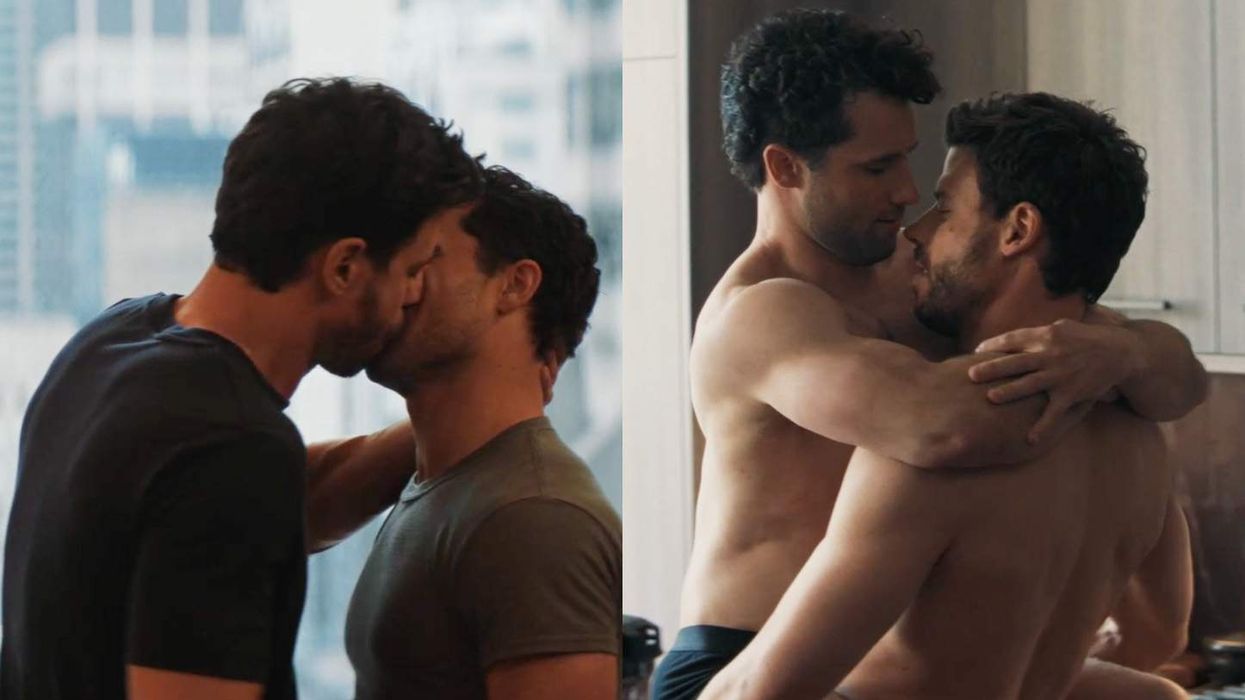


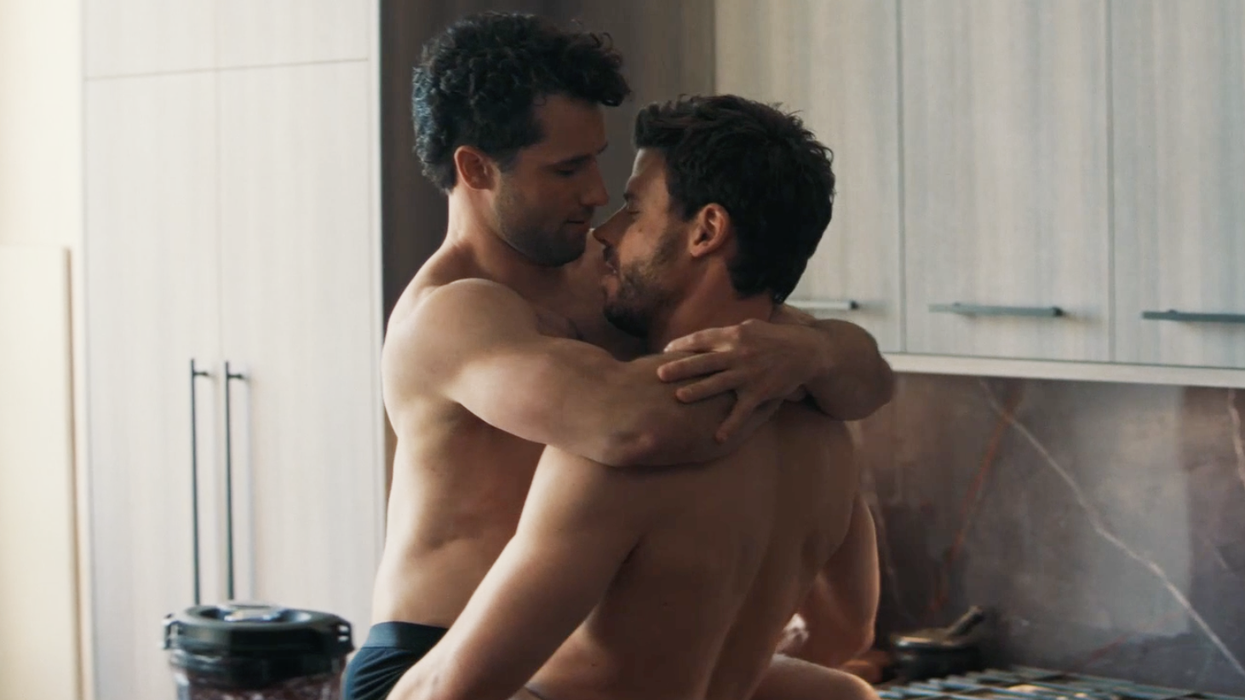
































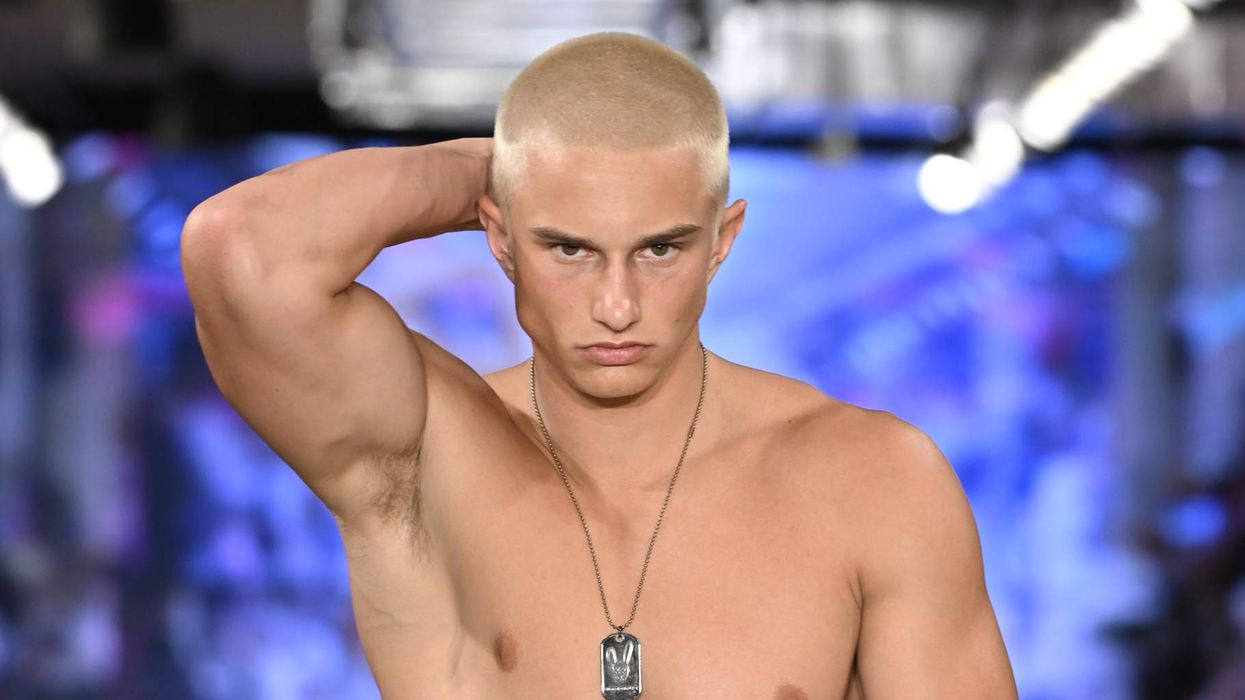

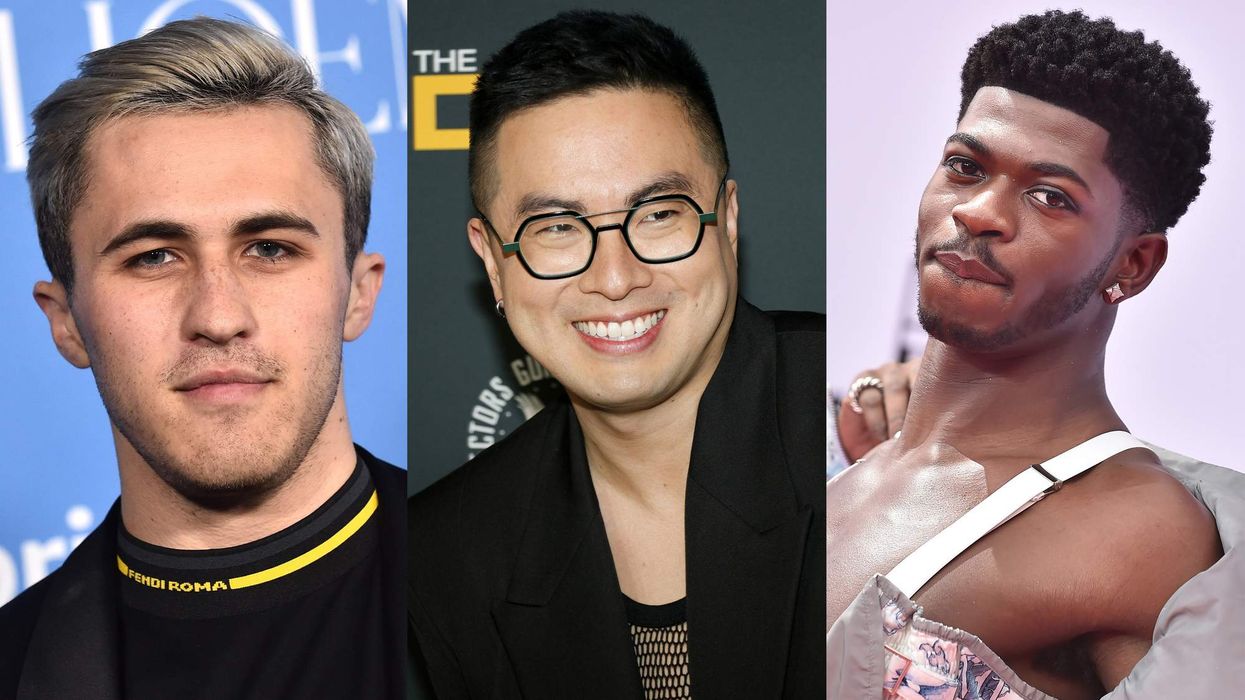


 Cindy Ord/Getty Images
Cindy Ord/Getty Images
























